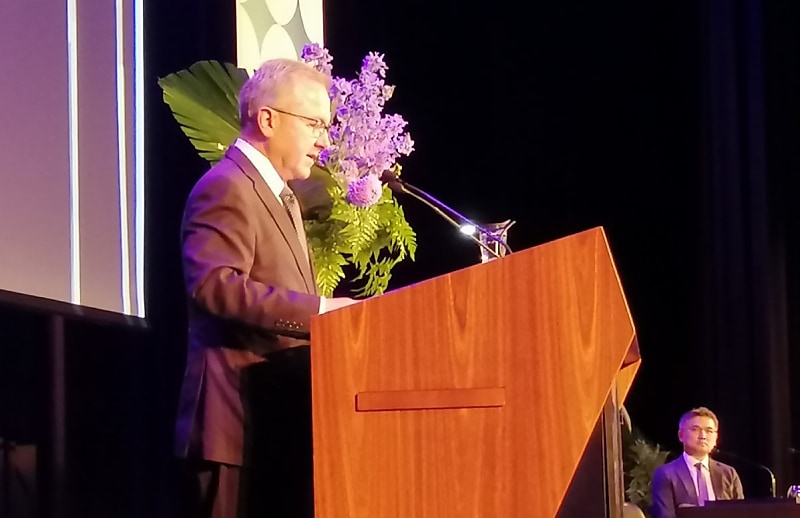Politicians damned for ‘dumb’ attempts at tax reform
TaxAustralia is saddled with an overcomplex system that punishes families, former ATO lieutenant says.

A former ATO second commissioner has fired a broadside at politicians for their “dumb” attempts at tax reform characterised by “thought bubbles” that favour one group over another and fail to learn lessons from the past.
“Fiddling” and “tweaking” politicians had avoided opportunities to fix the system, said Andrew Mills, delivering an opening address at this week’s Tax Institute Tax Summit, and a failure to consult had left Australia “saddled with some of the most difficult tax rules to comply with and to administer”.
“The failure to properly lead a conversation, to avoid being railroaded by one section over another, to fail to articulate a program of change that is good for the country and is designed to benefit many and cost only a very small number… is evidence of poor planning and a failure to learn lessons from the past,” he said.
“For me perhaps the very worst process is these thought bubbles, one idea is run up the flagpole so to speak without giving a moment’s thought to the criticality of an integrated solution, involving many parts of the system, which is likely to get more traction with the electorate than just a single issue.
“Let me be very blunt: this is dumb.
“At best we see politicians fiddling around the edges and not recognising that real reform means reform of the system — all of it, not just some part.
“Opportunities to fix the system are regularly thrown away by tweaking one part only, and often in doing so exacerbating problems that exist somewhere else.”
Labor’s mooted crackdown on franking credits funded by capital raisings was a “classic example” of the flawed process and he held little hope that next week’s budget would contain “significant announcements on substantive tax reform”.
Mr Mills, whose four-decade career in the tax profession takes in responsibility for the ATO’s law practice from 2014–19, is currently chair of the Financial Reporting Council, a Treasury body that oversees accounting and auditing processes for both public and private sectors.
He said piecemeal reform that ignored how the tax and benefits systems interact was punishing Australian families.
“How many countries fail their families as Australia does, by the punitive effective marginal tax rates that second income earners face by virtue of the interaction of the tax and social security system when working a fourth or fifth day?” Mr Mills said.
“Everyone talks about the problem, but a real and permanent solution requires addressing more than just one part of the system. It requires consideration of the whole of the tax system, the social security system, and even the education system.
“Without considering the behavioural reactions changes, throwing money at one part of the problem only is likely to be economically unproductive.”
He said the challenge was to “change the system when you can’t change the system”.
“To me, the first and obvious area is good and sensible reform to those matters that are under the control of ATO and Treasury: tax policy development and tax administration,” Mr Mills said.
The ATO should focus on registration and lodgement, with an increasing reliance on data and the potential to move to real-time reporting.
“With higher levels of confidence in data, that responsibility could shift back to sophisticated ATO systems that could allow a reversion to a full assessment system. Why would I advocate that? Well, it would mean a lower risk of penalty for taxpayers and a greater competence of finality in their tax affairs,” Mr Mills said.
In the same way, single touch payroll provided a template for how business tax might develop.
“The same principles for data sharing could be implemented to get real time data about the business’s income and expenses, either directly from the business itself, or from reliable third party sources such as banks, business customers and suppliers. This could assist both in reducing the compliance burden of preparation and lodgement as well as supporting correct reporting,” Mr Mills said.
Other potentially achievable reforms included a move to real-time payments for PAYG and GST as well as a rethink of the funding and organisation of the ATO.
“I expect little fundamental tax reform to occur in the near term — I would love to be pleasantly surprised otherwise. Nonetheless, if it is not possible to get that kind of change then there are opportunities to change the policy development and administration of the system,” Mr Mills said.




